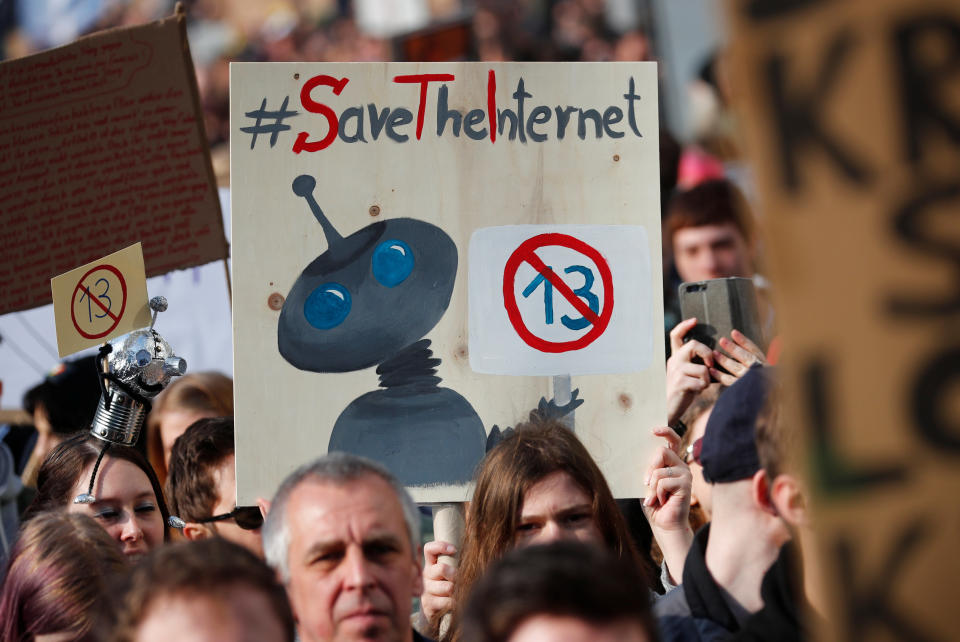EU parliament backs controversial 'upload filter' copyright law

The European parliament approved a controversial new copyright law on Tuesday that could significantly change the way internet content is governed.
Article 13 in the new law has caused the most outrage, as it will make publishers and platforms like Facebook and YouTube legally responsible for the content that is uploaded to their sites. To monitor the sheer volume of uploaded content will require these companies to install filters.
Critics say such a move will destroy internet freedom, while the creative industry says the change will give artists protection against illegal uploads and help them get payment for their work. This update to the existing 2001 EU copyright law now needs to be approved by EU member states individually, but is expected to pass into law.
Many artists welcomed the new law, as it will likely help ensure they get fairly paid for copyrighted work. But opponents, including tech giants like Google that make money from advertising around content, maintain that these filters will inevitably catch and block legal content uploads too, which could amount to censorship and change the face of the internet.
Google, which will now have to compensate artists and publishers under the new rules, said last week that the copyright reforms will hurt Europe’s creative and digital economies, as well as cause legal confusion.
Another point in the reform of the copyright directive, Article 11, has also attracted major criticism, as it states that news aggregate platforms and search engines must pay to use links from news websites.
Tens of thousands of people took to the streets of Berlin, Munich, and other European cities on Saturday in a “Save our Internet” march, while a Change.org petition against the reform got some 5 million signatures.

 Yahoo Finance
Yahoo Finance 